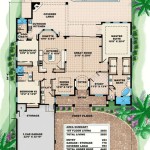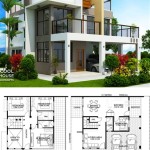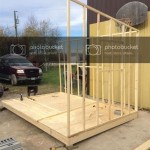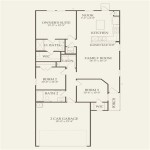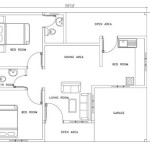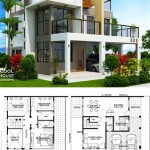Essential Aspects of a Cool House Plan
In today's increasingly warmer climate, designing a house that stays cool naturally is essential. A well-planned cool house plan can significantly reduce energy consumption, enhance comfort, and improve overall well-being. Here are the key aspects to consider when designing a cool house:
Passive Design Principles
Passive design techniques harness natural elements to regulate indoor temperatures. Orientation, window placement, and thermal mass play crucial roles. Orienting the house to face north or south allows for optimal sunlight exposure in winter while minimizing heat gain in summer. Large, well-placed windows allow for natural ventilation and cross-breezes. Thermal mass materials, such as concrete or stone, absorb and release heat slowly, helping to stabilize indoor temperatures.
Insulation and Air Sealing
Proper insulation and air sealing are essential for minimizing heat transfer. High-performance insulation in walls, ceilings, and floors reduces heat loss in winter and heat gain in summer. Air sealing prevents unwanted air infiltration, reducing drafts and improving overall energy efficiency.
Shading and Ventilation
External shading devices, such as awnings, overhangs, and trees, are effective in blocking direct sunlight from entering the house. This reduces heat gain and glare. Natural ventilation, achieved through windows, vents, and ceiling fans, helps to circulate fresh air and remove excess heat.
Roof Design
The design of the roof plays a significant role in cooling a house. Sloped roofs with high ceilings promote air circulation and reduce heat buildup. Reflective roofing materials, such as solar tiles or white paint, minimize heat absorption. Proper ventilation in attics and roof spaces prevents heat from accumulating.
Landscaping
Landscaping can enhance the cooling effect of a house. Deciduous trees planted on the south and west sides provide shade during summer while allowing sunlight in winter. Vegetation around the house helps to reduce solar radiation and increase humidity, which has a cooling effect.
Window Selection
Windows are critical for natural ventilation and daylighting. High-performance windows with low U-values and high solar heat gain coefficients (SHGCs) minimize heat loss and gain. Double or triple glazing, low-emissivity coatings, and argon gas fills further enhance window performance.
Indoor Air Quality
Maintaining good indoor air quality is essential for a comfortable and healthy home. Ventilation systems, air purifiers, and humidity control systems help to remove pollutants, reduce allergens, and prevent mold growth. Fresh air intake and exhaust vents ensure a constant supply of clean, fresh air.
By incorporating these essential aspects into the design of a house, homeowners can create a cool, comfortable, and energy-efficient living space that promotes well-being and reduces reliance on artificial cooling systems.

Cool House Plans With S Houseplans Blog Com

Modern And Cool House Designs With Open Floor Plans Blog Eplans Com

Cool Meadow Farm House Plan Archival Designs

Modern And Cool House Designs With Open Floor Plans Blog Eplans Com

House Plan 66236 French Country Style With 6274 Sq Ft 5 Bed
The Most Beautiful House Plans Right Now Houseplans Blog Com

Modern And Cool House Designs With Open Floor Plans Blog Eplans Com

House Plan Chp 49770 At Coolhouseplans Com Husritningar Husplaner Ritningar Små Hus
The Most Beautiful House Plans Right Now Houseplans Blog Com

58 Cool Floorplans Ideas House Floor Plans Layouts


